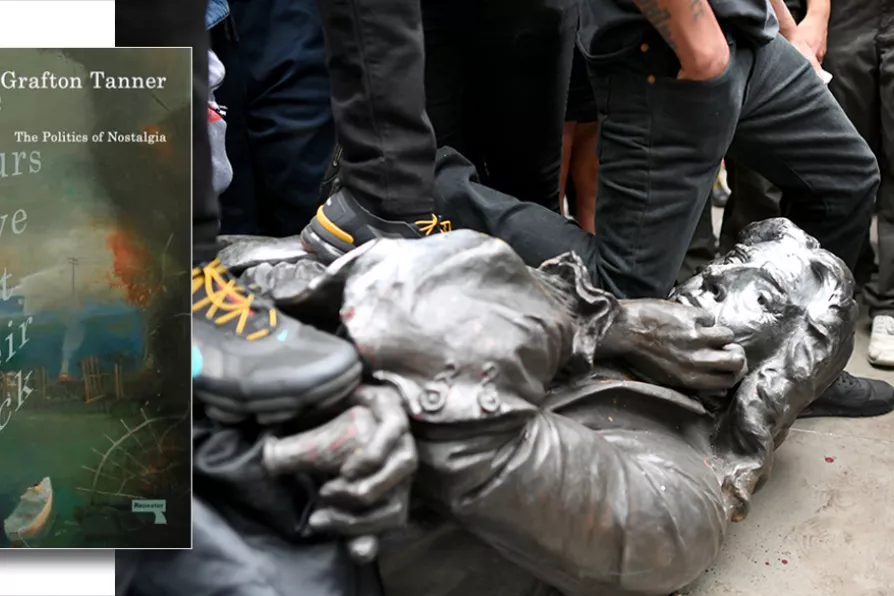TONY BURKE speaks to Gambian kora player SUNTOU SUSSO

 ESCAPING A TOXIC PAST: The statue of Edward Colston is pulled down during a Black Lives Matter protest in Bristol in June 2020
ESCAPING A TOXIC PAST: The statue of Edward Colston is pulled down during a Black Lives Matter protest in Bristol in June 2020
The Hours Have Lost Their Clock
By Grafton Tanner
Repeater Books £14.99
WE ALL live with time, although not necessarily in time. Grafton Tanner, however, believes that we are all increasingly living in a world escaping into nostalgia. Although he recognises that, given the chaos of the present and the fear of a questionable and uncertain future, the past can seem a more comfortable habitation.
The subtitle of his book, The Politics of Nostalgia, signals that this is no celebration of sentimentality. Nostalgia as a word was first coined during the French revolutionary wars when Napoleon’s armies suffered from high levels of stress and desertion owing to homesickness. It was even established as a medical condition.
Although new words do not necessarily denote new things, nostalgia, found largely untreatable by the medical fraternity, quickly established itself as a commercial and political tool in promoting the interests of capitalism.
“Many people mistrust nostalgia. They associate it with conservative politics and movements that trick people into ideologically backward mindsets.” From his US base, Tanner regards the Trump election and Brexit as examples of this “global malaise” – people encouraged to look back to recapture an illusory Utopian age when the respective nations were “great,” cordoned off from intrusive migrants.
His observation that many, living in “none- places” wiped clean of diversity and social bonding by corporate makeovers, yearn for nostalgia-scapes providing an anchor to some kind of meaning, reminds me of the phoney neo-Georgian prettiness of Prince Charles’s Poundbury.
Tanner sees time not in linear terms progressing from one period to another but as folded layers whereby the past can “percolate” up into the present, sometimes not comforting but as a “monster everyone thought had been buried in the past.”

GORDON PARSONS is enthralled by an erudite and entertaining account of where the language we speak came from

GORDON PARSONS steps warily through the pessimistic world view of an influential US conservative

GORDON PARSONS is fascinated by a unique dream journal collected by a Jewish journalist in Nazi Berlin











